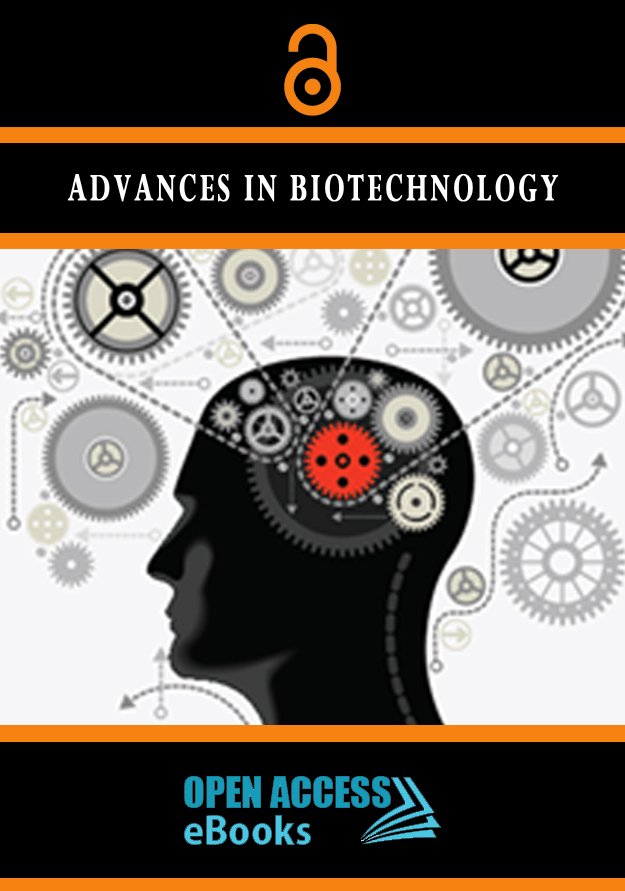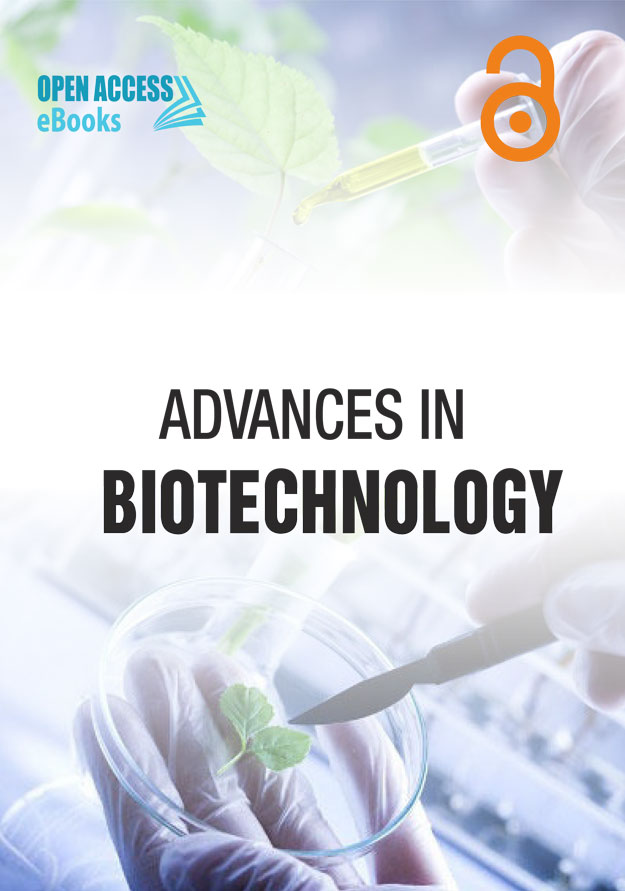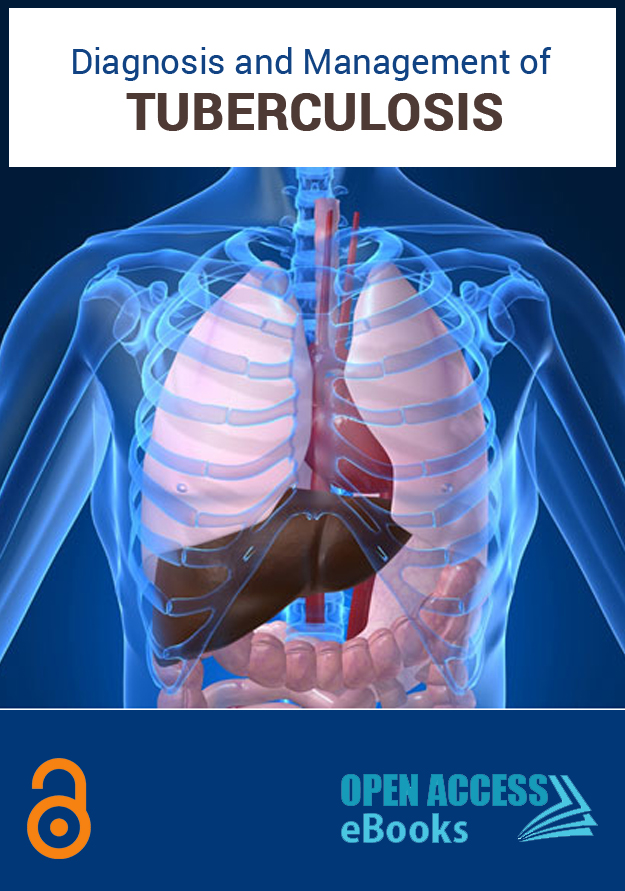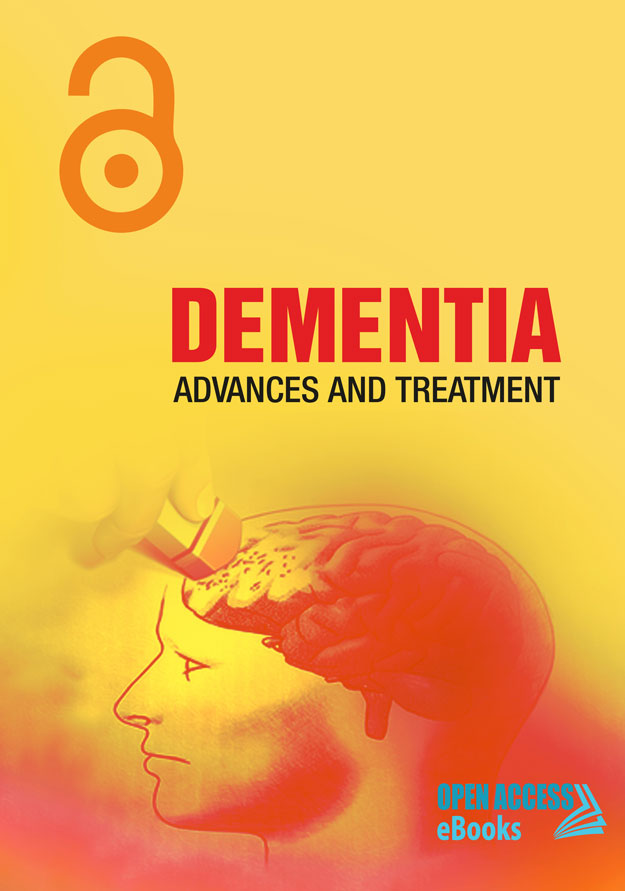
ISBN: 978-93-87500-18-1
Editors:
1. Asis Datta
2. Md Fakruddin
3. Hafiz Muhammad Nasir Iqbal
4. Jayanthi Abraham
Biotechnology is the use of living organisms, biological processes or systems to manufacture/develop different drugs or products to improve the quality of life. The science of biotechnology is divided into four categories: red, white, green & blue.
Open Access eBooks is inviting researchers working in the areas of Biotechnology to submit their book chapter for the publication in volume 2 of an eBook ADVANCES IN BIOTECHNOLOGY.
All book chapters undergo review process and published content is available in PDF & HTML formats.
Benefits of publishing with us:
Universal Access: eBooks published in Open Access eBooks gain international visibility. No region barriers and content is accessed by everyone across the world from our website. We also deposit published eBooks in different databases.
Freely Available: Open Access eBooks follows the principles of Open Access and the content is available to the readers without any cost. Readers can read, share, and store the published ebooks/book chapters.
Copyright with Authors: As an eBook publisher, we serve researchers in publishing their valuable work after the stringent review process. However, copyright lies with authors. We follow the CC-BY-NC-ND license (https://creativecommons.org/licenses/by-nc-nd/3.0/).
Different Formats: We provide eBooks in PDF and HTML formats. Both formats are user friendly and can act as per the user requirements. We put our efforts to provide other formats in future.
For more information, contact info@openaccessebooks.com
Published Chapters:
Adverse Effects of Amphetamines on Cardiovascular System: Review and Analyses of Trends
Author(s): Ahmed Al-Imam
Background: Amphetamine and amphetamine-type stimulants are powerful physical and psychostimulants; they are Phenethylamine derivatives. The use of amphetamines can be either medicinal or illicit. Several amphetamines have been redesigned into illegal drugs of potent properties. Hence, they are named as designer drugs or novel (new) psychoactive substances. Materials & Methods: This manuscript is a hybrid study of; data crunching and retrospective analysis of a trends database (1), and a systematic review of literature in relation to the amphetamines-induced adverse effects on the cardiovascular system (2). Google Trends database has been analysed in retrospect (2012-2017) to evaluate the attentiveness of surface web users towards amphetamine and a potent renowned amphetamine derivative known as captagon (fenethylline).
Cancer Epigenetics: Role of Epigenetic Events in the Onset and Progression of Cancer
Author(s): Manisha Sachan*; Alka Singh
The word Epigenetics describes inheritable changes in gene expression that are independent of alterations in DNA sequences. Epigenetics is one of the most rapidly expanding fields in biology and over the past 16 years, the epigenetic regulation of DNA-based processes has been intensely studied. Epigenome is essential for the regulation and in unraveling the stages of normal and abnormal cellular development, including the phases of growth, differentiation, senescence, aging and immortalization during carcinogenesis.
Magnesium as a Novel Regulator of Human Health and Diseases
Author(s): Sandeep Hans; Zeeshan Fatima*; Saif Hameed*
Magnesium (Mg) plays an important role in various cellular processes such as DNA repair and replication, transporting potassium and calcium ions and signaling transduction. Dietary source which are rich in Mg includes seeds, cocoa, nuts, green leafs and almonds. The daily dietary intake of Mg is frequently found to be below than the recommended in western country. Certainly it is recognized that Mg deficiency may lead to many disorders of the human being for example diabetes, cardiovascular disease and TB. Moreover, Mg deficit also leds to inflammation and amplifies the level of free radicals where it causes oxidative DNA damage and tumor formation. The presented book chapter provides a summary of low Mg impact on human health and development of various diseases.
Response of Cultivars and Rooting Media on Root Behavior and Bud establishment in Rose (Rosa Hybrida ) under Cuttage- Buddage System
Author(s): Yadavendra Kumar Yadav*; Pankaj Kumar Arora
An investigation was designed to comprehend and evaluate the vegetative response of rose cuttings to three cultivars and in four different rooting media. Experiment was conducted on three cultivars namely; Happiness, Avon and Kiss of Fire using four rooting media viz; soil (control), vermiculite, perlite and sand:soil:FYM (1:1:1 v/v). It was conducted as a factorial experiment on the basis of Completely Randomized Design with three replications. There were five budded cuttings in each replication. The findings revealed that cuttings of Rosa indica var. odorata budded with buds of cv. Happiness (V1) recorded maximum bud take percentage for all the four rooting media. Cultivar Happiness performed better than cv.
Development of Antibody Reagents against Stem Cell Markers: Expression Pattern of Human Pluripotent Stem Cell Marker Nanog and Germ Cell Marker Fragilis by Rat Testis
Author(s): K Gopinath Achary; Monalisa Ray; Swagatika Dash; Sanghamitra Nayak; Shikha Singh*
The relative rarity of stem cells in embryonic or circulating bloods of the adult has human prompted the scientific community to search for markers that are biologically unique to stem cells and could be used for identification of cell type. Stem cell markers can be either on the cell surface or part of an intracellular signalling pathway associated with cell proliferation, differentiation or cell-cell interaction. Further a combination of markers facilitates identifying a particular cell type with consistency. Keeping this in view, attempts were made to develop antibodies against Germ cell marker Fragilis and embryonic stem cell marker Nanog.
Production of Recombinant Proteins from Plants - An Overview
Author(s): Mathangi Ganapathy*; Perumal Kaliraj
Since time immemorial, mankind has been developing crops to suit their needs by selective breeding. Cultivar development within a species has been done by selecting alleles present a population. Sexual recombination allows alleleic recombination during meiosis resulting in plants which can be selected with novel traits. The primary gene pool allows for crosses to be easily made, the hybrids will be fertile and chromosome pairing is normal, thus allowing Mendelian segregation of traits. The biological species is divided into two categories, (i) subspecies composed of lines used for agronomic use and (ii) subspecies, which contains weedy or wild relatives of subspecies A. The secondary gene pool refers to all biological species, which cross with a different species. Although mating and gene transfer are possible, there will be hybrid sterility or aberrations in chromosome pairing.


